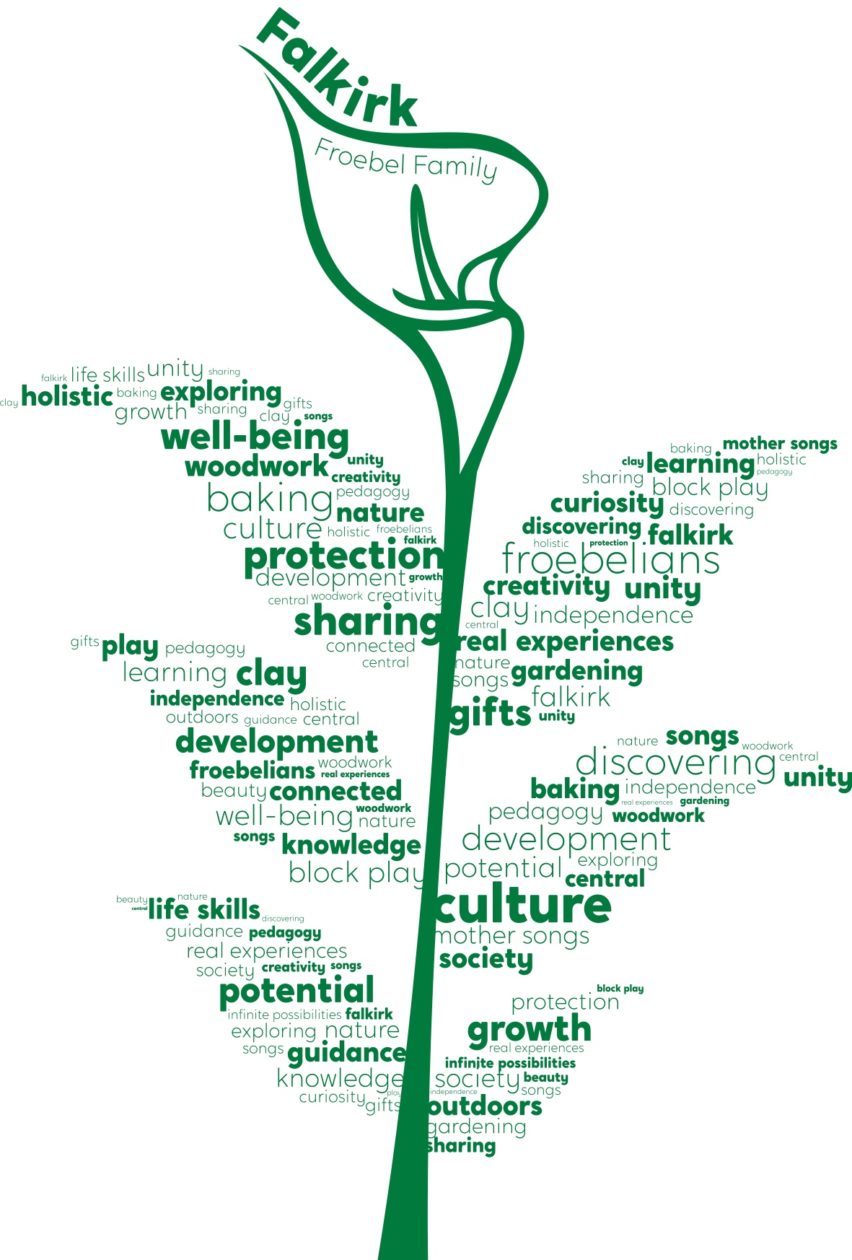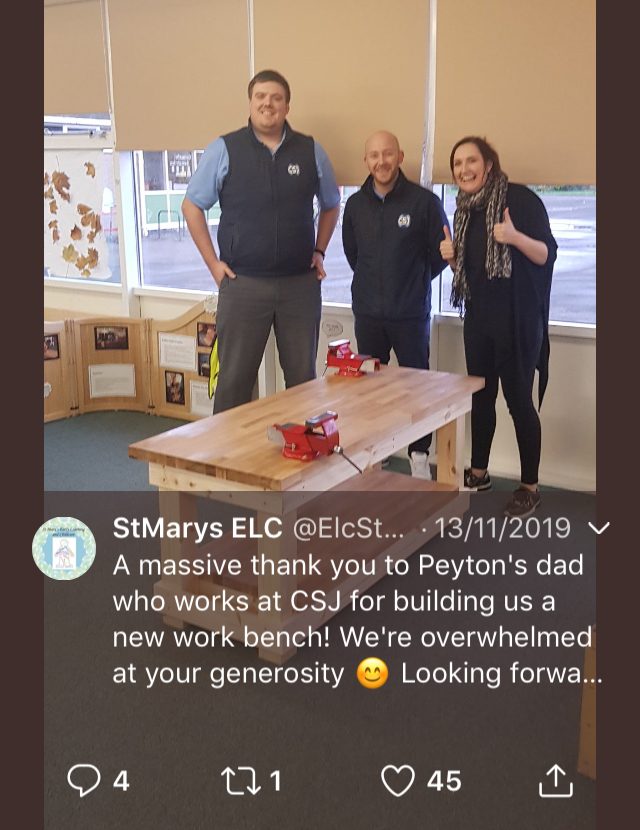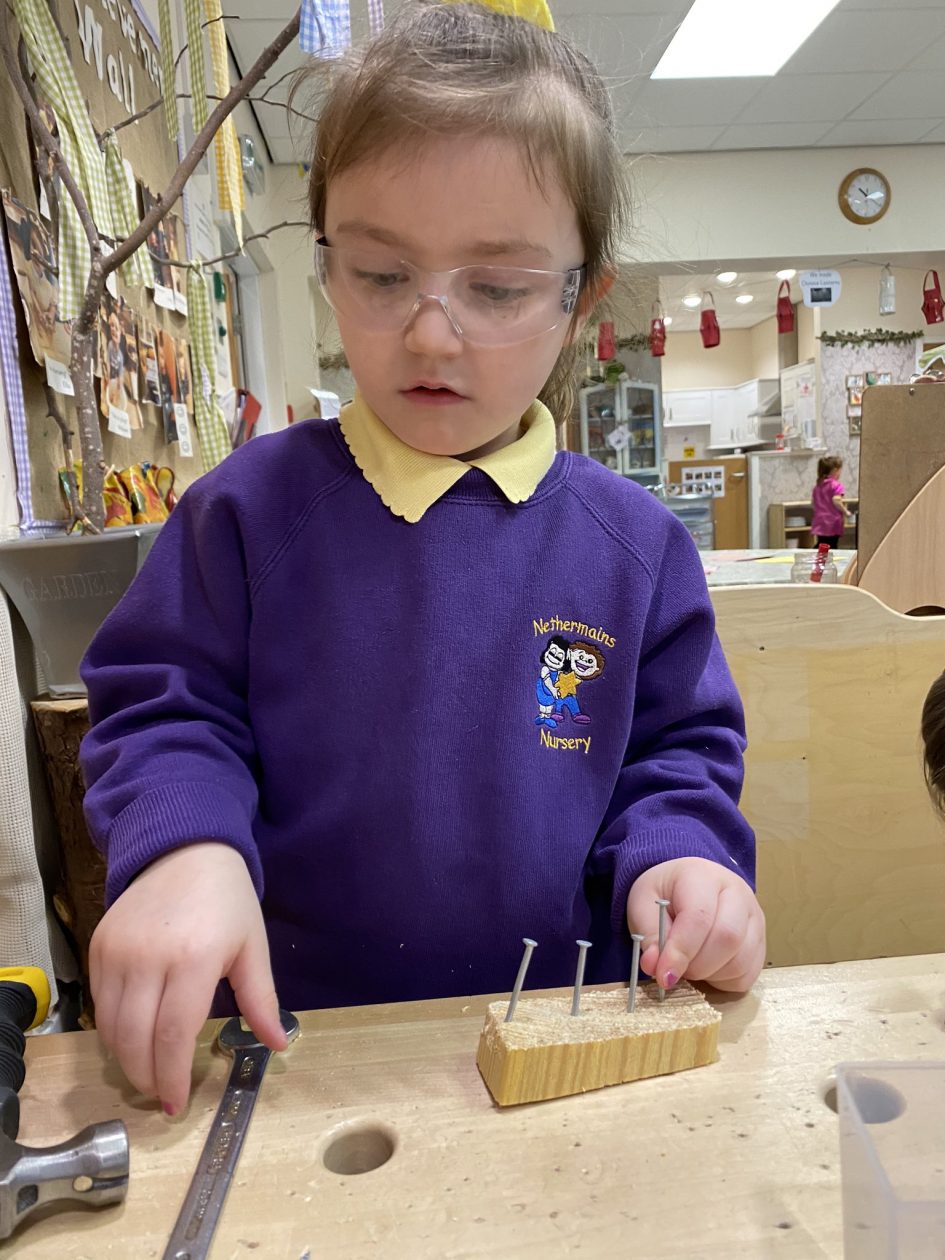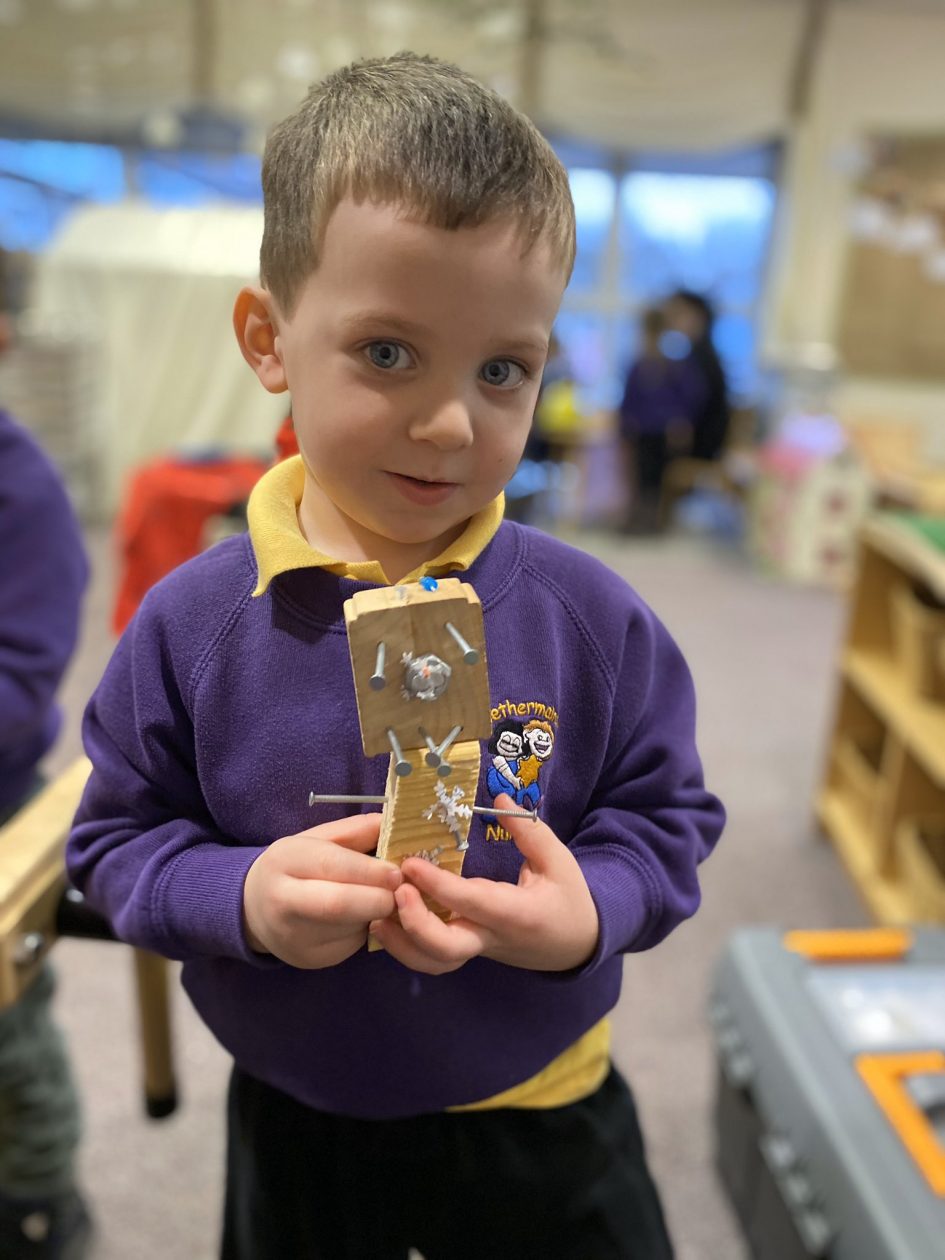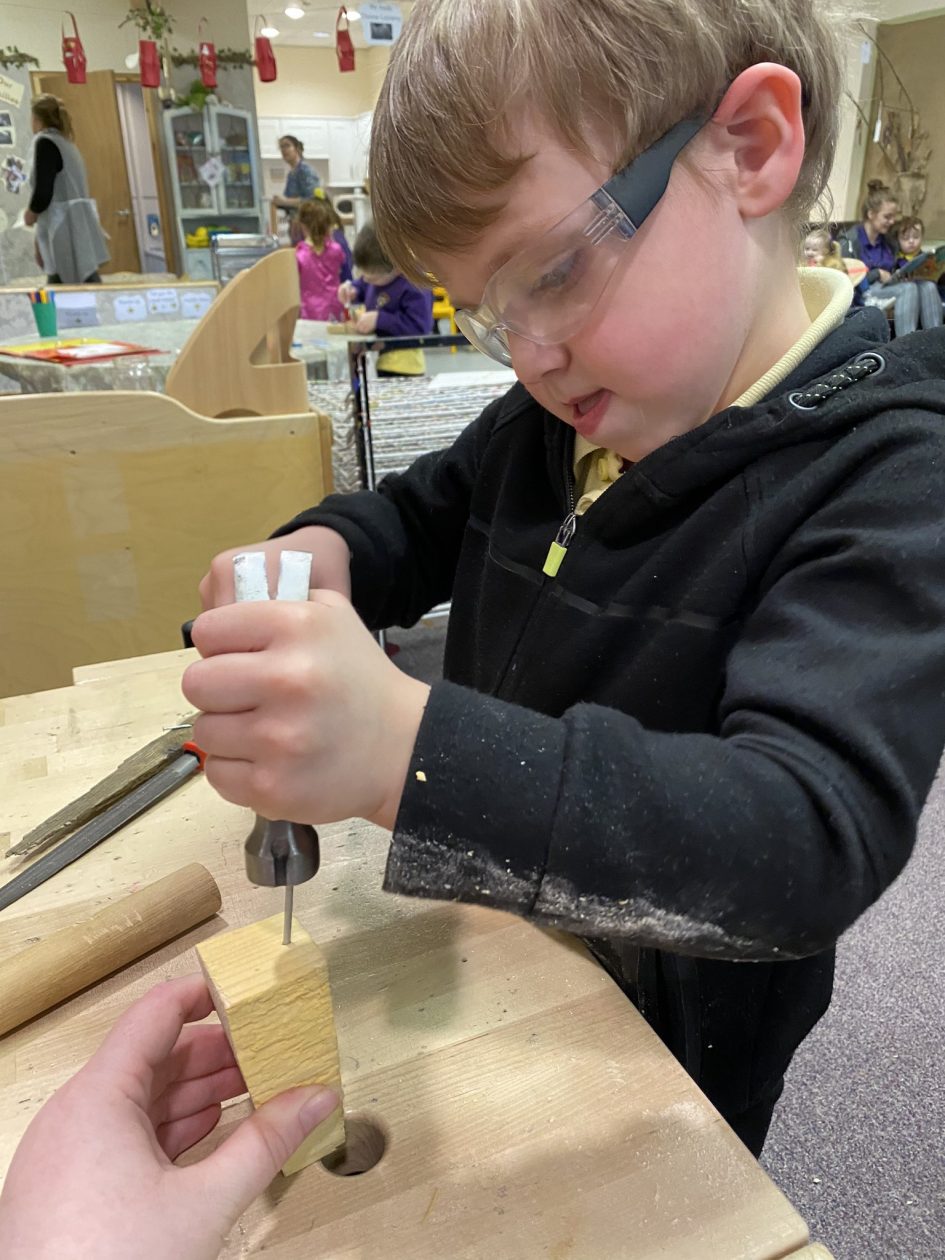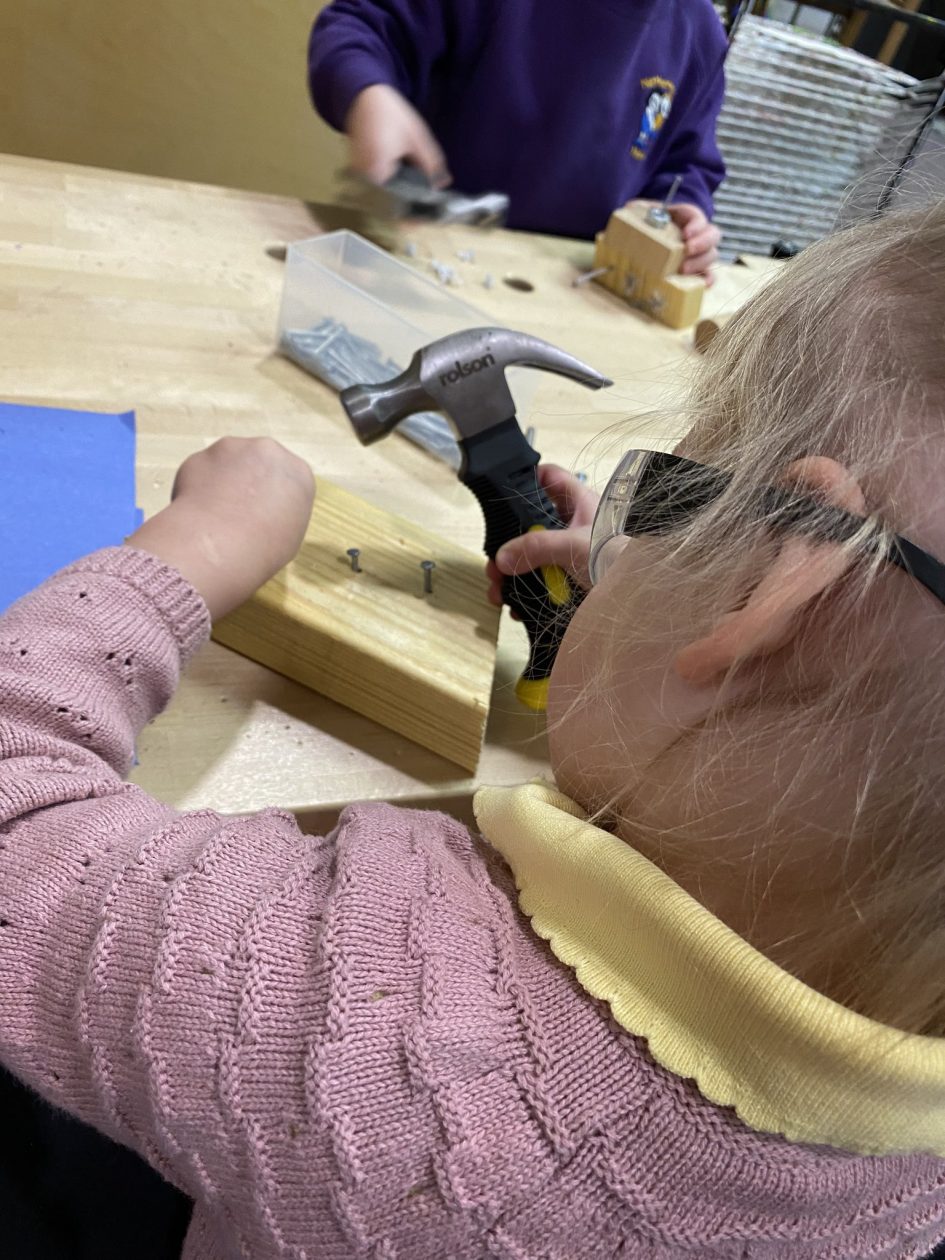Click here to access our Woodwork information and resources (this link is available to Falkirk staff and will require a Glow account to access) where you will find some guidance to support woodwork in practice. Remote Falkirk Froebel Family CLPL for Woodwork: #Wonderful Woodwork Practice Guide Handbook and How can we make woodwork wonderful: Empowering Young Children to Shape their World. This also includes wonderful examples of practitioner enquiry posters from practitioners Froebel projects from studying Froebel in Childhood Practice Certificate course through the University of Edinburgh.
*Falkirk Council Early Years / Early Level Practitioners or any Falkirk Council Educators who would like to learn more about woodwork. If you wish to complete remote Woodwork CLPL please click the hyperlink above this will enable you to access Falkirk Froebel Family Presentation How can we make woodwork wonderful: Empowering young children to shape their world along with our Wonderful Woodwork Practice Guide Handbook.
——————————————————————————
We are delighted that Pete Moorhouse has written an absolutely fantastic blog for our Falkirk Froebel woodwork blog. Many Falkirk practitioners became extremely passionate to implement woodwork into practice after attending Pete’s Masterclass. (September 2020)
Big bang! Small hands… Big ideas!
Creative woodwork in early childhood
Blog by Pete Moorhouse
These are exciting times. In recent years there has been a surge of interest in woodworking in early childhood education around the world. In some cases this will be settings starting from scratch, in others, it’s a case of dusting down the workbench and digging out the tools after many years of neglect.
This is very welcome as benefits of woodwork for children’s learning and development run deep across all areas of learning. Teachers who provide woodwork regularly observe exceptional levels of sustained engagement, with deep focus, concentration and perseverance with challenging tasks – especially with complex problem solving. It is not unusual children to spend all morning at the woodwork bench. Woodwork really engages hands, minds and hearts.
The rise in the popularity of woodwork not surprising given the levels of children’s enjoyment and the fact that it provides such a profound learning experience. The renewed interest is perhaps in part a reaction our increasingly digital world, where children have learnt to swipe before they can walk, and also the fact that currently ‘making’ is back in fashion, with a renewed interest in craft and upcycling, perhaps a reaction to our overly homogenised world. In terms of sustainability, woodwork gives children the experience of making and repairing, countering the prevalent culture today of consuming and disposing.
Perhaps the biggest factor though, has been the shifting attitudes moving away from risk aversion. Following from Lord Young’s review of Health and Safety 2010: Common Sense Common safety, and subsequent positive guidance from the Health and Safety Executive (2012), the DoE (2013) and recently from Ofsted (2017), schools in the UK have felt encouraged to take a more balanced attitude towards risk and embrace woodwork once again. This is a significant culture shift and whilst still in its infancy, should be wholeheartedly celebrated.
There is something really special about woodwork. It is so different from other activities. The smell and feel of wood, using real tools, working with a natural material, the sounds of hammering and sawing, hands and minds working together to express their imagination and to solve problems, the use of strength and coordination: all go together to captivate young children’s interest.
We observe children working with their hands, tinkering, constructing models, and working on projects, but in fact the real transformation is inside the child – personal development is at the heart of woodwork.
Woodwork is a powerful medium for building self-esteem and confidence. This is for a combination of reasons. Children feel empowered and valued by being trusted as they take responsibility to work with real tools. They accomplish tasks that they initially perceive to be difficult and problem-solve to resolve challenging tasks. They show great satisfaction in their mastery of new skills and take immense pride in their creations. This sense of empowerment and achievement provides a visible boost to their self-esteem and self-confidence. Children have a natural desire to construct and build. This imparts a ‘can-do’ attitude and imbues children with a strong sense of agency – a belief they can shape their world.
When we analyse a woodworking session it is extraordinary to see just how much learning is involved. It encompasses all areas of learning and development and invites connections between different aspects of learning. It supports current thinking on how children learn best, embracing all the characteristics of effective learning and thus fostering confident, creative children with passion for life-long learning. Woodwork really can be central to curriculum. It incorporates mathematical thinking, scientific investigation, developing knowledge of technology, a deepening understanding of the world, as well as physical development and coordination, communication and language, and personal and social development.
Woodwork provides another media through which children can express themselves. Creative and critical thinking skills are central both in terms of imagination and problem-solving as children make choices, find solutions, learn through trial and error and reflect on their work.
Children are drawn in as they explore possibilities, rise to challenges and find solutions. Woodwork is really unrivalled in terms of providing children with problem solving opportunities and challenge. I know no other activity that promotes creativity and critical thinking in quite the same way that woodwork does and I believe this is really at the heart of woodwork’s appeal and success.
Some children particularly flourish when working with wood, enjoying working three-dimensionally and working with their hands. The experience of woodwork can really be the key that unlocks some children’s learning.
Children are surrounded by complex technology but this has limited their experience of basic technology, with fewer opportunities to watch and learn and to understand processes In recent years there has been a marked decline of woodwork in primary and secondary schools with less than half of pupils ever using tools in their entire education.
Woodwork is one of the most popular activities and incorporates so much learning. Let’s provide all children with this valuable opportunity.
If you are already doing woodwork – please contribute the The Big Bang Research Project researching the impact of woodwork on young children’s learning and development. Follow this link to complete the online research survey:
The confidence to work with tools provides a skill set for life. Many children will need practical skills for their future work and woodwork in the early years could well be children’s only experience of working with tools. Fortunately working with tools leaves a deep memory – so even if early childhood education is their only experience of working with wood it will leave a long lasting impression. Many adults recount that experiencing woodwork as a child is one of the memories from early childhood that still really stands out.
With woodwork children can develop their learning at their own pace and find their own challenges. Once they have mastered basic skills, they move into open-ended exploration – tinkering, exploring possibilities and then start making unique creations. Their imagination, creative thinking and problem-solving skills really flourish as they meet and conquer new challenges.
Some teachers and parents are surprised that we introduce woodwork to children as young as three, but it must be emphasised that it is a low risk activity when introduced and monitored correctly. We have been successfully woodworking with pre-school children for over 20 years with no significant incidents.
https://irresistible-learning.co.uk/woodwork/the-big-bang-research-project/
Your contribution would be very much appreciated
Pete Moorhouse is an early years creative consultant and artist educator. Pete is the UKs leading authority on woodwork in Early Years education and has written several books and journal articles, including ‘Learning Through Woodwork’ (Routledge). He is currently working his latest book – ‘Creativity in Practice: Nurturing creative and critical thinking in early childhood education’. Pete won the national award (2019) from the Creative Learning Guild for his work promoting creativity in education.
CPD woodwork training is available throughout the UK (when restrictions allow) and Pete is now offering an in-depth online woodwork course – a set of 8 pre-recorded videos and a set of 14 handout proving you with all the information you need to get started: https://irresistible-learning.co.uk/woodwork-cpd-online-course/
Pete’s book ‘Learning Through Woodwork: Creative woodwork in the Early Years – Routledge 2018 – goes into considerable depth and makes for a wonderful resource for any school:
Pete can be contacted through his website: https://irresistible-learning.co.uk
Thank you so much Pete for giving us such an inspirational woodwork blog. We plan to continue to build capacity and experiences of woodwork for many of our children in Falkirk and we are ever so grateful for all the support you have shown us. We highly recommend Pete’s CPD training, website and literature.
As Pete has kindly written us a blog above, we highly recommend the work of Pete Moorhouse: he has a fabulous website at: https://irresistible-learning.co.uk for those who would like to deepen their understanding and knowledge of woodwork in the Early Years his book would support this extremely well.
“Woodwork is active learning at its best!” Tina Bruce, CBE
Pete’s new book is published by Routledge
Learning Through Woodwork: Introducing Creative Woodwork in the Early Years
Please find below a link that our Falkirk Primary STEM Development Officer (RAISE) Barbara has shared to support woodwork in practice. Online mini CLPL tools in School.
————————————————————————–
Please collaborate and share your woodwork journey as we learn together by sharing tweets @FalkirkFroebel …..
Falkirk Froebel Family Woodwork CLPL 2020-21
We are excited to announce that we have created our Falkirk Froebel Family Woodwork CLPL for all educators in Falkirk. If you have woodwork as core provision in our Falkirk Early Years/ Level establishments or plan to develop this, please sign up via Falkirk CPD manager.
Wonderful Woodwork in Falkirk
Why I chose to implement woodwork within my setting by Stacey O’Donnell, Early Years Officer at Bainsford ELC.
I took forward woodwork within my setting as I have always promoted and voiced my beliefs that children should have the opportunities to develop life skills which will ultimately benefit other aspects of their learning. Children should be given opportunities that may seem to some a little risky in order to risk assess their own boundaries and problem solve for themselves which are valuable life lessons. Woodwork will provide these opportunities for these skills to be developed.
I decided to use woodwork to promote these skills after attending a training session at the end of 2019 led by Pete Moorhouse. Pete Moorhouse has a strong background with woodwork and has fully established it within his and many other settings. I’ve attended courses in the past that have covered many topics and I have developed them in the setting almost half-heartedly due to either not enough research, too many barriers or lack of interest which have resulted in rushed, overpowering and lack of depth learning experiences, whereas, after this woodwork session, I was so inspired and motivated to develop this into the nursery and couldn’t wait to get started.
I have always been hands on and love to create and experiment which is why I think this appealed to me. From my own personal experiences as a child, I have fond memories of my Papa who made all sorts out of wood for us such as dolls houses, rabbit hutches and bird feeders. Along with my gran who would make all sorts from sewing, they had the attitude of “why buy it when we can make it” which is a trait I have within me.This course resurfaced these childhood memories for me which is where I think the enthusiasm came from. When children make their own designs using writing materials or paint, they have a strong sense of pride and I love to see that same response through their woodwork creations as well as them developing important life skills.
Another reason I felt strongly about introducing woodwork within the nursery is to promote STEM. As part of the improvement plan within the whole school we are developing STEM projects at all levels. Woodwork has all the structure within it to highlight and provide opportunities in science, technology, engineering and mathematics.
If done correctly and introduced to the children within the setting gradually, woodwork can be a very popular area of the nursery. The children will develop lifelong skills that cover many areas of their development. Skills such as creative and critical thinking, risk assessing, resilience, patience, collaborative play, problem solving, and independence are all visible and achievable through woodwork which are skills that are valuable through all stages of life.
I communicated my plans and intentions with my colleagues as all staff were to be involved in some way for woodwork to be fully implemented within my setting. These conversations were to discuss area and space, budget, sourcing tools and materials, time, routine, parental involvement, training and risk assessments.
I also informed parents/carers, both formally and informally about the positive opportunities that was to come from the children taking part in woodwork.
The most challenging part of setting up and carrying forward with woodwork is sustainability of resources. I sourced balsa wood from sites such as amazon and hobby craft. We then were lucky enough to receive a lot of pine wood from a local charity shops who were preparing to burn it. A tip off that came from a parent. Once woodwork is up and running and the parents see the benefits, they become your main providers on the lookout for resources and donating what they have or have collected
Overall, nothing but positive experiences has come from woodwork. We have had amazing feedback from parents and more importantly, the learning and experiences that the children have gained in the short time it has been available in my setting is enough to know that it will be a long-term feature there.
Thank you to Stacey for sharing your woodwork blog with us after attending and being inspired by Pete Moorhouse Masterclass CPD arranged by Falkirk Froebel Family as part of Froebel in Falkirk CLPL for 2019-20
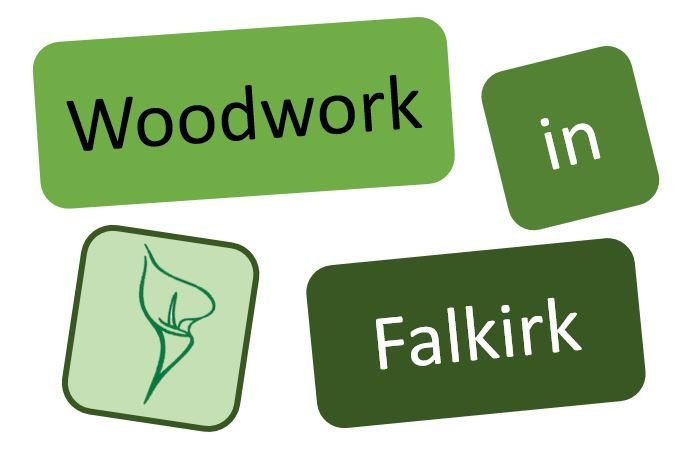



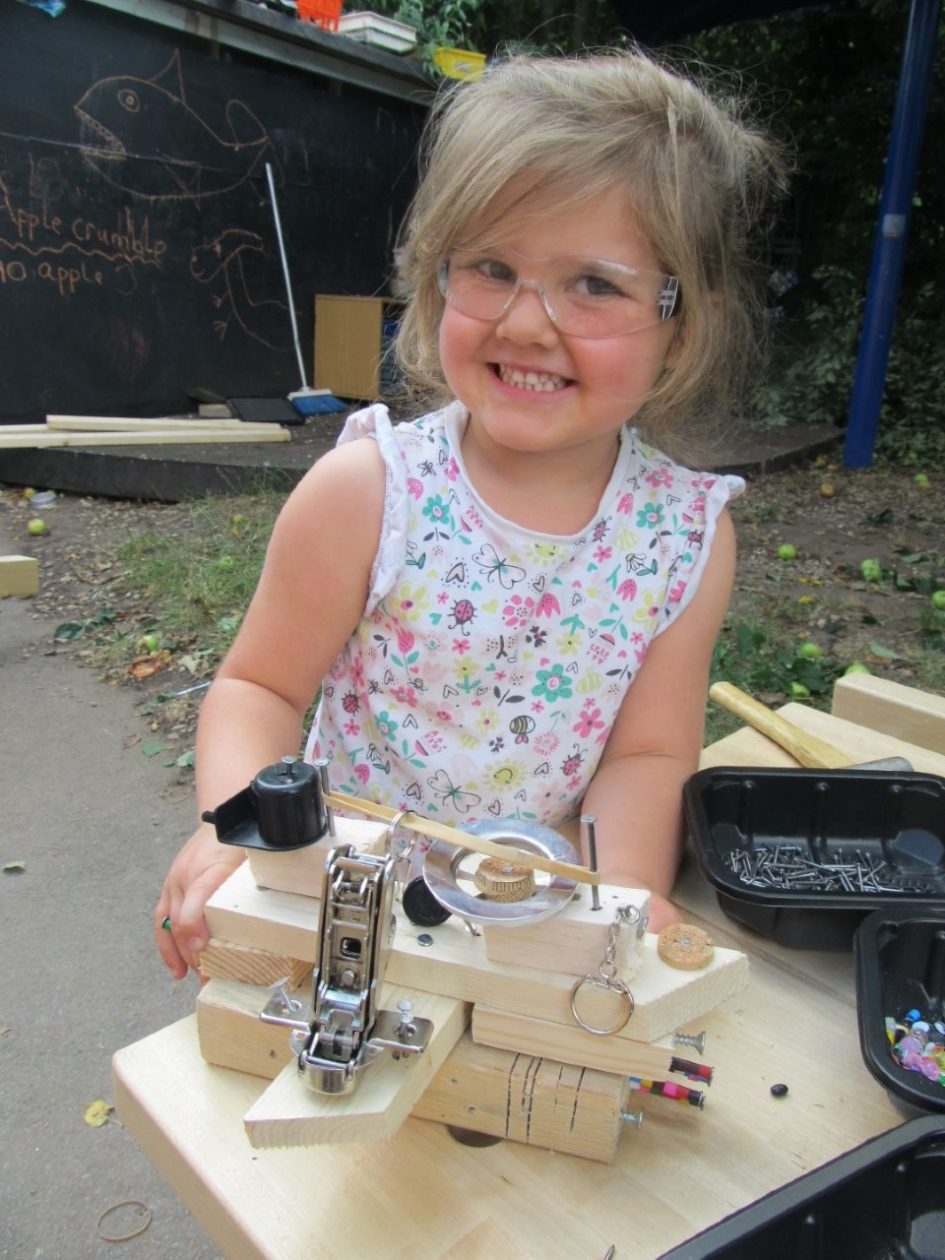
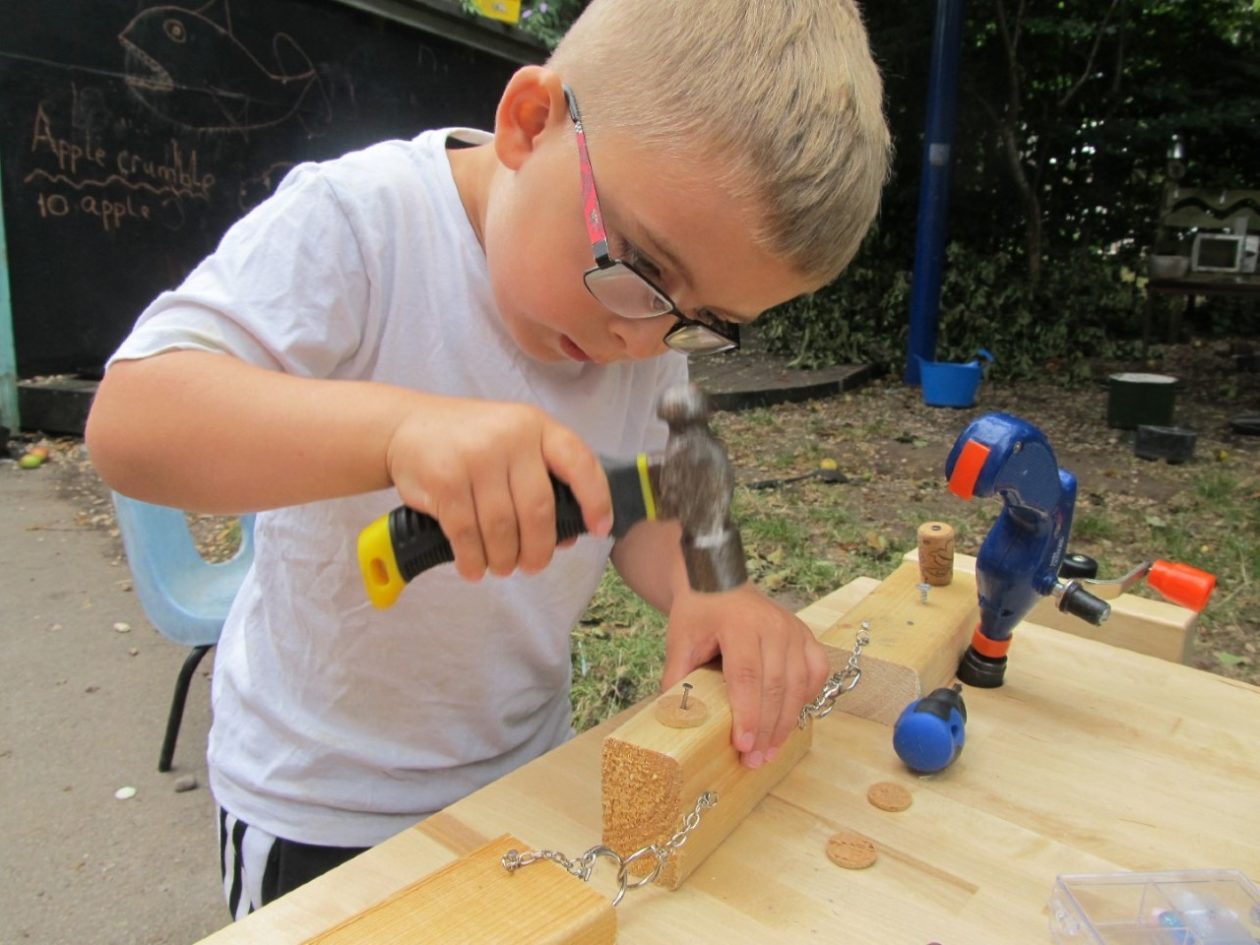
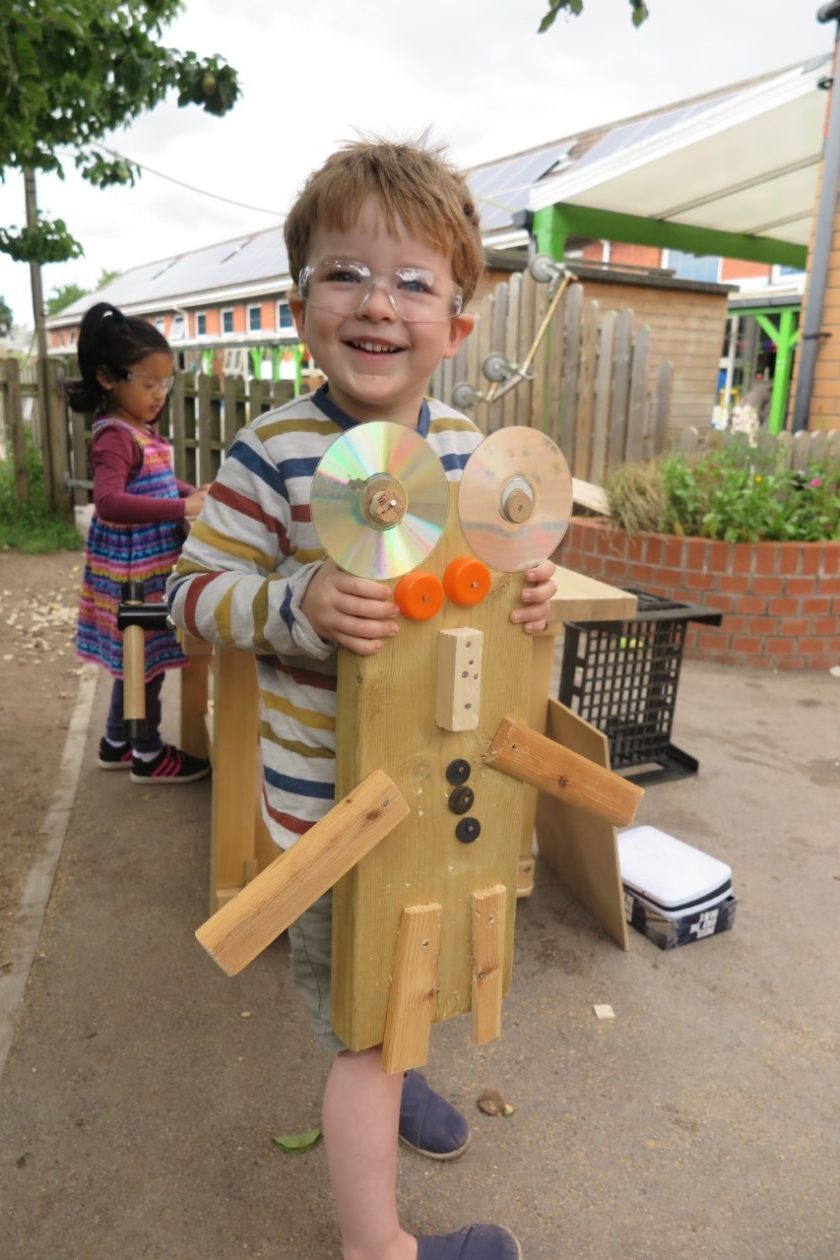
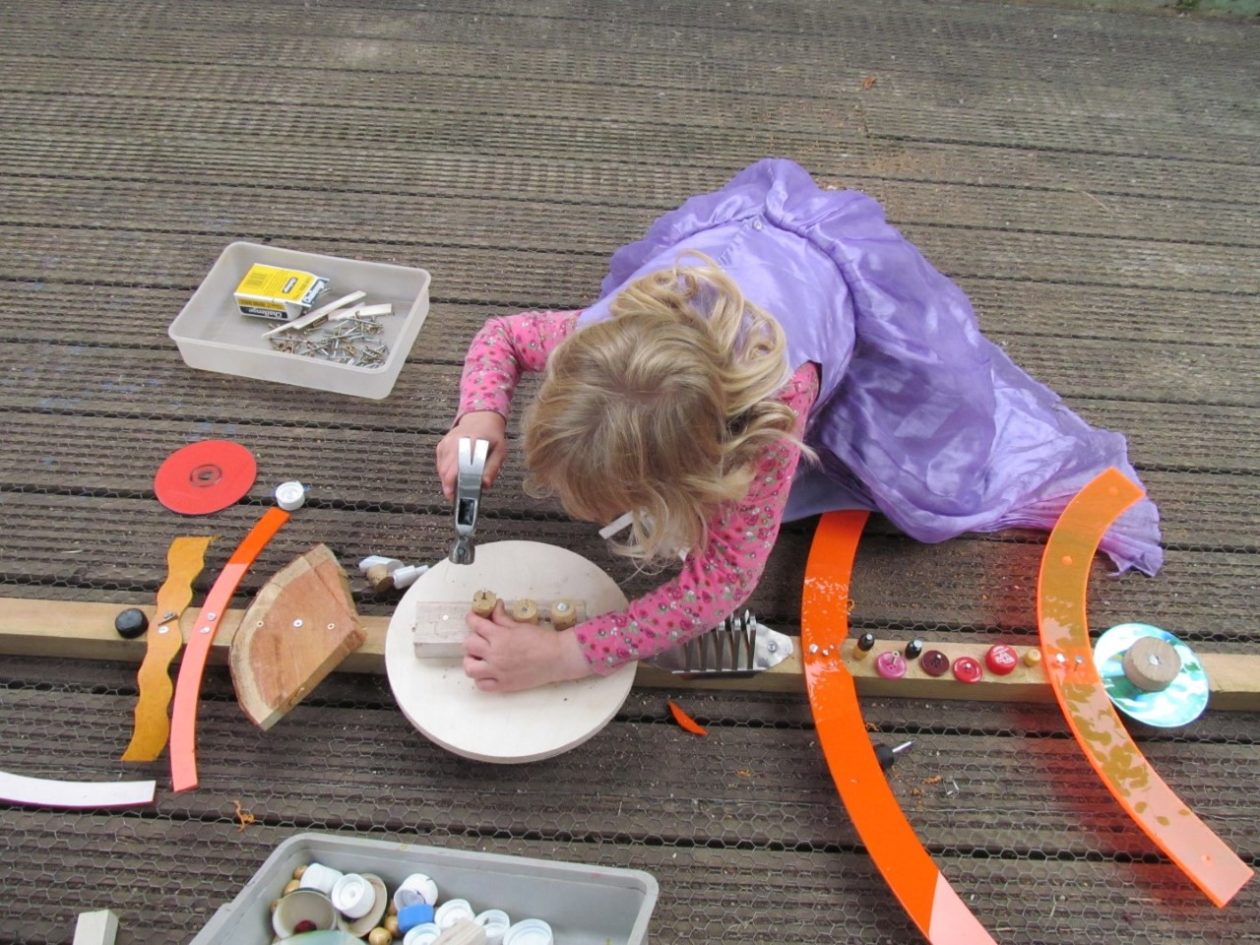
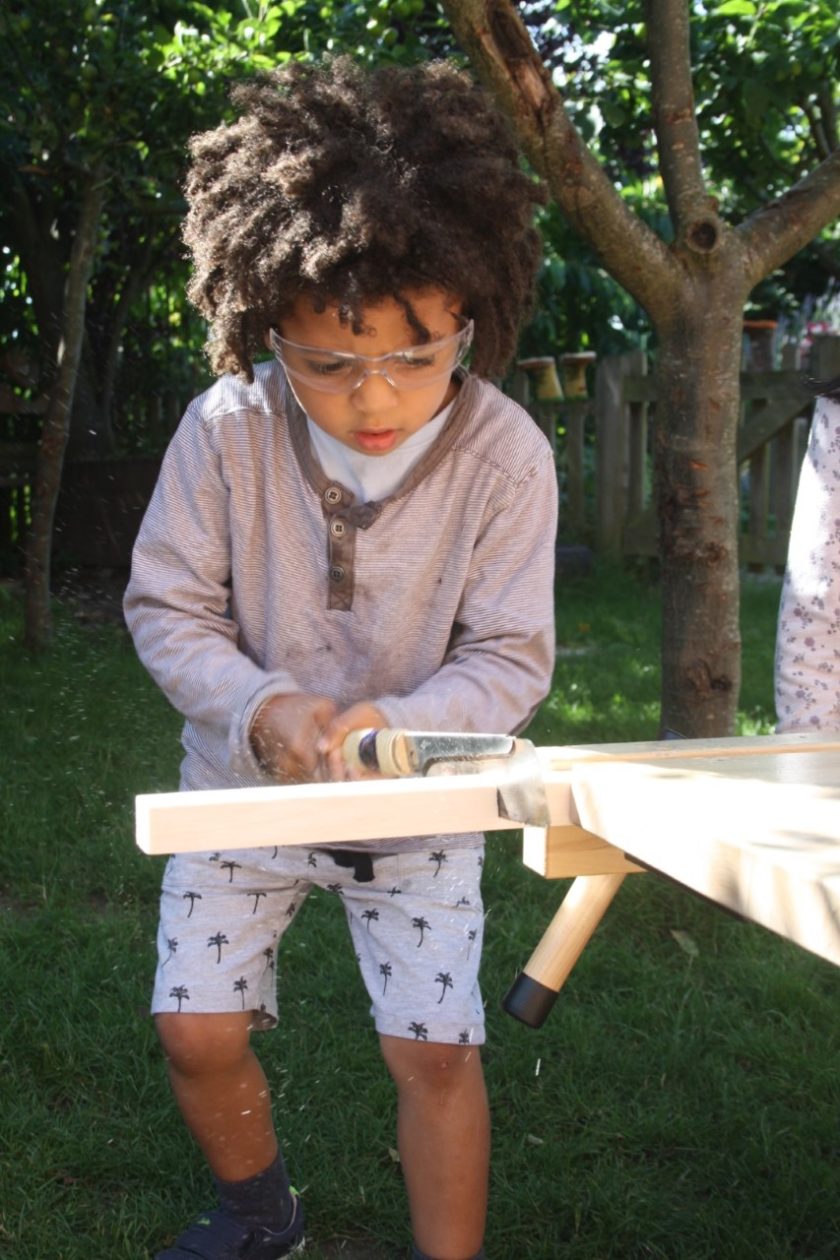
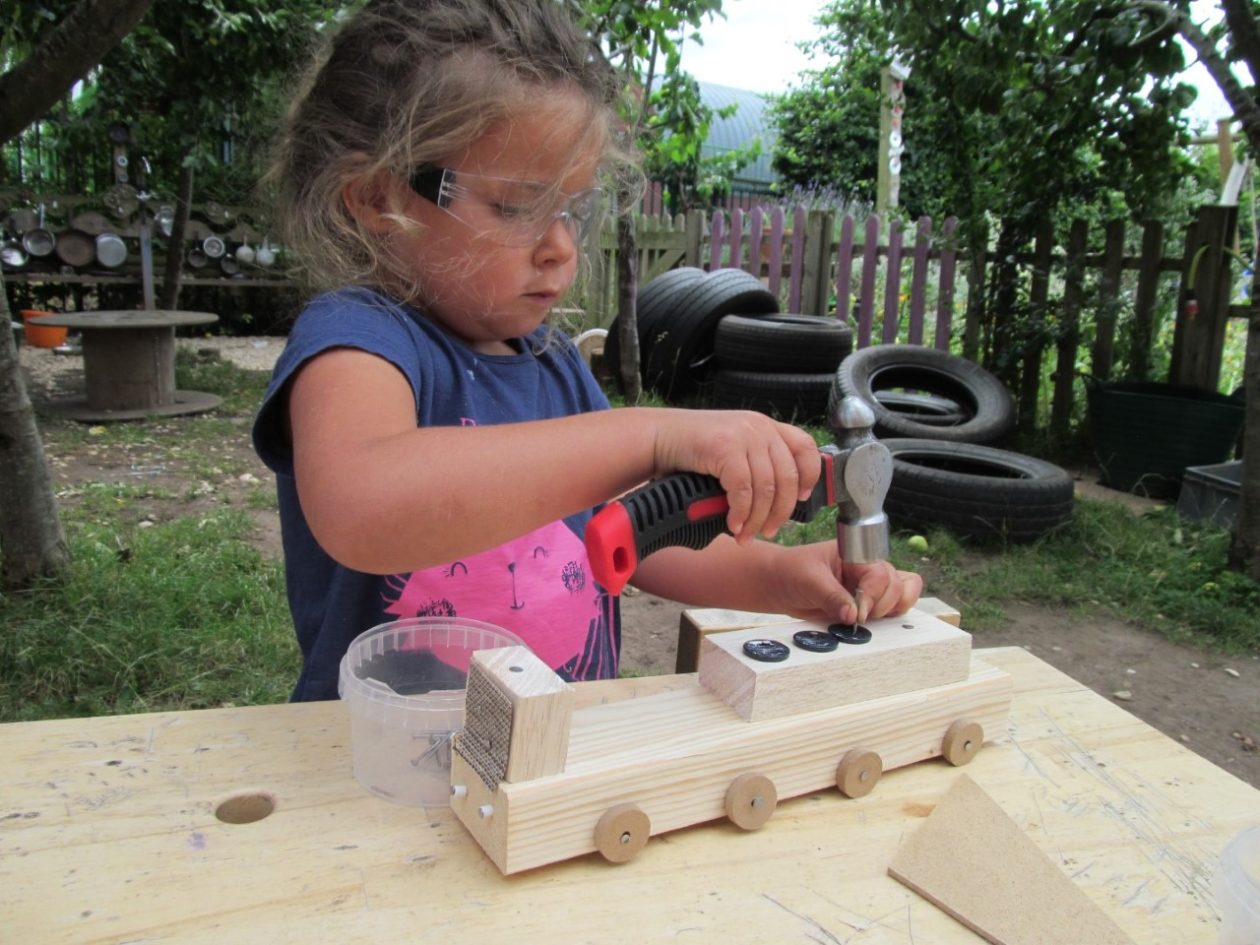
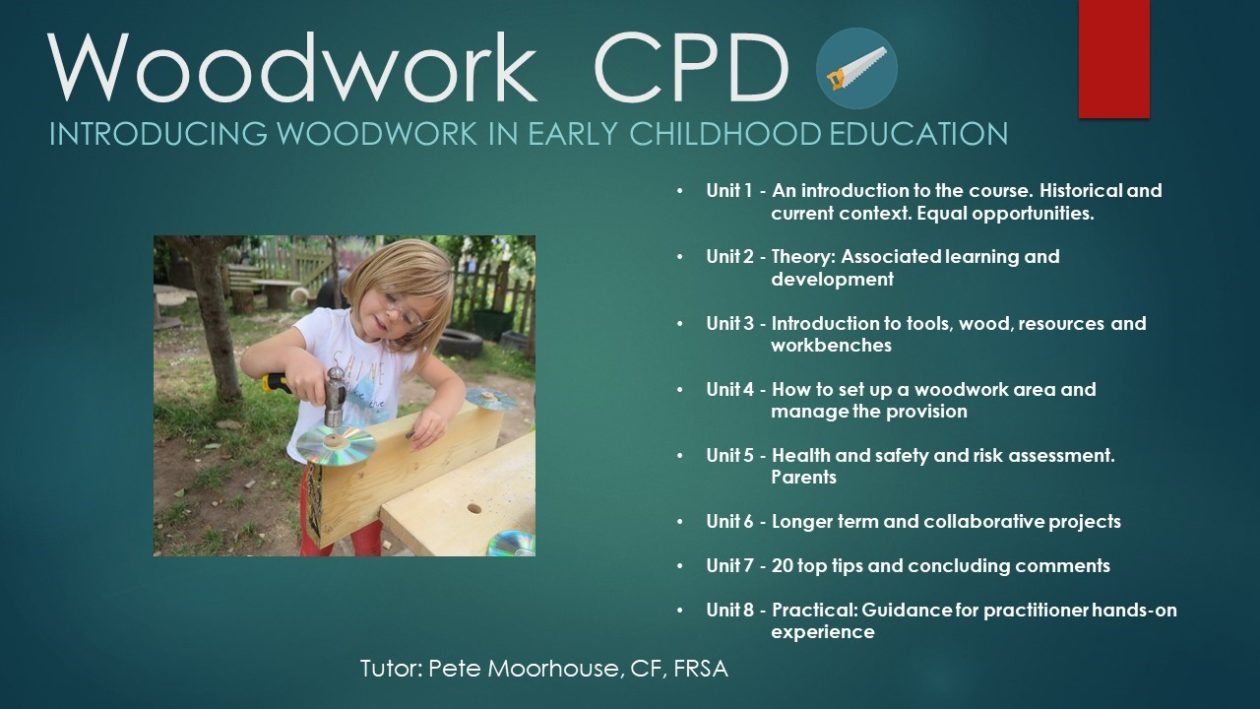

 Download (27.03mb)
Download (27.03mb)

